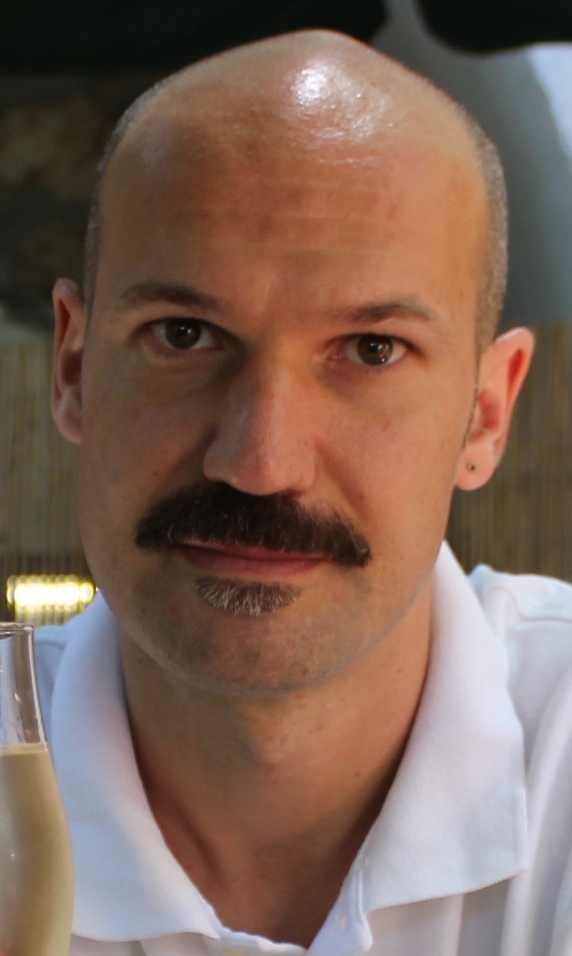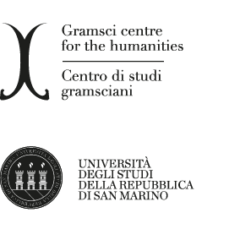To begin a discussion on the digital revolution in the humanities, we have asked some questions to our scientific advisors. Their answers will be published in eight issues. Here, as the seventh issue, Giusto Traina and Michele Nani.
Index
I) Agnese Accattoli and Davide Bondì.
II) Peter Burke and Elisabetta Benigni.
III) Marco Filoni and Erminia Irace.
IV) Lutz Klinkhammer and Matteo Melchiorre
V) Donald Sasson and Luca Peretti
VI) Jeffrey Schnapp and Paolo Varvaro
XIII
Giusto Traina
What generation do you feel you belong to?
In terms of age, I’m a boomer, but I have the presumption of being a perennial: not in the traditional sense of “perennial plant”, but in the meaning formulated in 2016 by the technology entrepreneur Gina Pell: “ever-blooming, relevant people of all ages who live in the present time, know what’s happening in the world, stay current with technology, and have friends of all ages”.
How and when – in your personal experience – did the digital revolution happen?
In 1987, thanks to a research grant, I bought my first computer: an IBM clone, with the 8-inch floppy disk drive and the screen with green characters on a black background. Between thirty and forty years old, my first “digital revolution” was common to many other operators in the humanities: typewriter in the attic and use of increasingly refined Word processors. Later, thanks to the Internet, there was a sort of second revolution: the progressive input of data into the network, which in recent years has increasingly influenced my modus operandi.
Is the “old” way of working still present in your life? (for example: do you write by hand? do you use paper archives that you keep in order? do you usually go and read in the library?)
With the first laptop, which you could take to the library, I gradually abandoned paper files. I realize that I have contracted some bad habits: with the abandonment of paper you certainly lose something. Paul Veyne (born in 1930) uses an interesting method: during his readings he writes “pizzini” by hand, which he gradually accumulates in a container. When it is full he starts to take them out, turns on the computer and writes. I couldn’t do it: but my handwriting is not very clear and often I can’t decipher the old cards that I keep anyway, even if not really in order.
The availability of texts on the net allows me to work almost always at home. I go to the library to look for publications not available on the net, or if I have to consult several sources at the same time. Having said that, I am very happy to have practiced for a long time the “old” way of working, which allows me to analyze data on the net with a critical detachment not always found in current students of humanities studies (OK Boomer: I tell myself).
What do you think about the “digital” organization of scientific-cultural work? To what extent would you define the current way of working as new?
The transition to digital (see above the second question) has certainly profoundly transformed my way of writing and processing research. But some technological changes, even if less striking, had occurred before. I learned to write with the Biro pen, but a few years before, the inkwell was still used. When I enrolled at the University, photocopiers had already become a familiar presence, where my older colleagues had had to practice – for themselves or for the “baron” on duty – the work of the amanuensis. And yet, I took advantage of Umberto Eco’s warning in Come si fa una tesi di laurea (1977): “pay attention to the alibi of photocopies! Eco – who at school wrote with a pen and inkwell – knew how to master the computer but he knew the limits of it: which are the limits of those who use it. It is not by chance that this aphorism attributed to him circulates on the web: “The computer is not an intelligent machine that helps stupid people. It is a stupid machine that only works in the hands of intelligent people.”

Giusto Traina, professor of Roman history at the Sorbonne-Université, studies political and military history and the historical geography of the late antique world, with a particular interest in relations between East and West. He is an innovative communicator, attentive to the presence of ancient tradition in today’s world.
XIV
Michele Nani
What generation do you feel you belong to?
I don’t like the “generation” category. I grew up in the 1970s, enjoying as a child the great freedoms offered by a suburban and popular neighborhood. I trained between middle school and high school in the eighties, years of restoration also cultural, and then in the following decade I attended university and then PhD, but politics, even militant, was a continuous source of intellectual inspiration. I couldn’t say, then, how many generations I belong to… I certainly feel like a man of the twentieth century.
How and when did it happen – in your personal experience – the digital revolution?
I got my hands on a computer very early in middle school: it was a ZX Spectrum. I used it to play games, but I also studied its manual, fascinated by programming. Between high school and university I had a computer training thanks to politics (real introductory courses, switching from mimeograph to printer for flyer matrices, the first BBSs that connected via telephone handset). During my graduation thesis I bought a desktop computer and started to use it mainly for studying, filing and writing, then to do my thesis in another city I got a laptop, also to go to libraries and archives and not having to transcribe tides of notes anymore. My first Internet connection dates back to the Italian explosion in the mid-1990s: it was an extraordinary opportunity, both for e-mail, which speeded up the exchange of letters, and for the OPACs of libraries, which made it easier to find books that were not in the city. After a stay in Paris, during which I discovered the potential of “free” software, thanks to the help of a departmental IT technician in 2005 I installed my first Linux OS and since then I have been working on Fedora, which I manage autonomously.
Is the “old” way of working still present in your life? (for example: do you write by hand? do you use paper archives that you keep in order? do you usually read in the library?)
Of course I do. If I have to make diagrams (programs, plans, reflections, etc.) I do them better and more willingly by hand. I still happen to take notes by hand when I read paper books, but then the worksheets are files, I don’t have any paper archives, except for the remaining files written until the early nineties. Normally, that is before the epidemic, I spent at least half the day in the archive or library (and I’d like to go back there soon). For reasons of space and to resist consumerism, I also try to buy a few work books and make intensive use of libraries: but I often have to move to larger university centers to consult the non-Italian bibliography and then I have to buy online what I can’t find (or find digital copies online).
What do you think about the “digital” organization of scientific and cultural work? To what extent would you define the current way of working as new?
The theme is complex and cannot be reduced in a few lines. Above all, there are distinct specificities and the work of a laboratory biologist is not the same as that of a medieval historian or an applied economist. Digital is a precious resource for historical studies, I am thinking for example of the difficulty of finding census data (in my city there were only a few volumes and I had to move elsewhere) and then copy them: today Istat has put digital copies on the web, with a lot of internal searchability (OCR). But digital, like all technology, is also an instrument of domination, and this also applies to cultural work: in the sense of social relations (exploitation and hierarchies), cognitive distortion (the stress of “acceleration”, well framed by Hartmut Rosa), disciplinary practices (think of the rhetoric on “big data” and on “digitization” itself, which hides the constitution of particular “corpus” of sources whose value is universalized). It is not, of course, a matter of rejecting its benefits, but of promoting institutional and social conditions that enhance the emancipatory potential of digital, not its regressive uses.

Michele Nani, historian of the Institute for Mediterranean Studies in Naples (CNR), works on a wide variety of social history themes from the modern age on: from migrations to historical demography, from urban to labour history.

